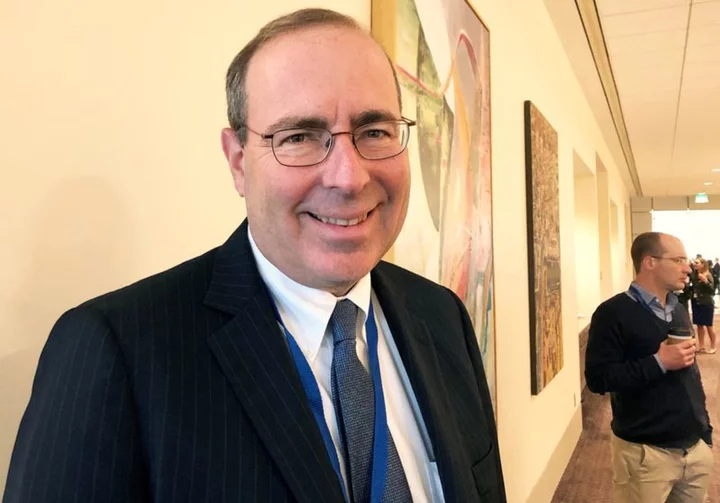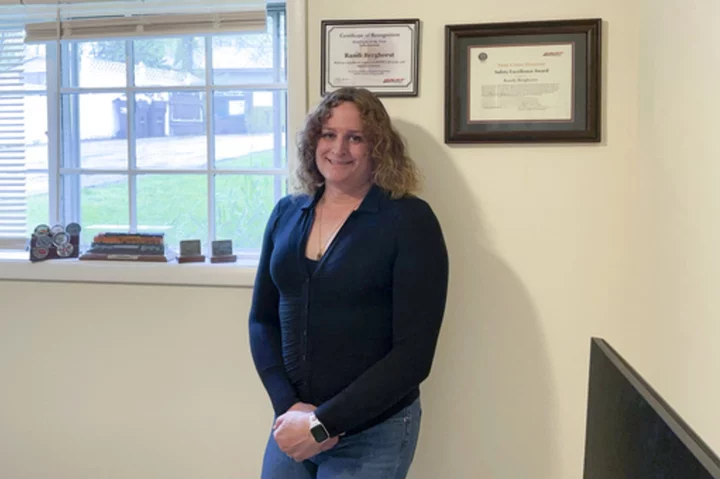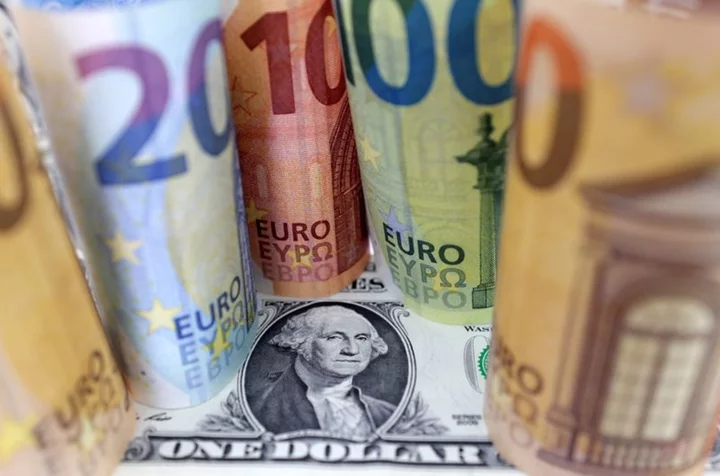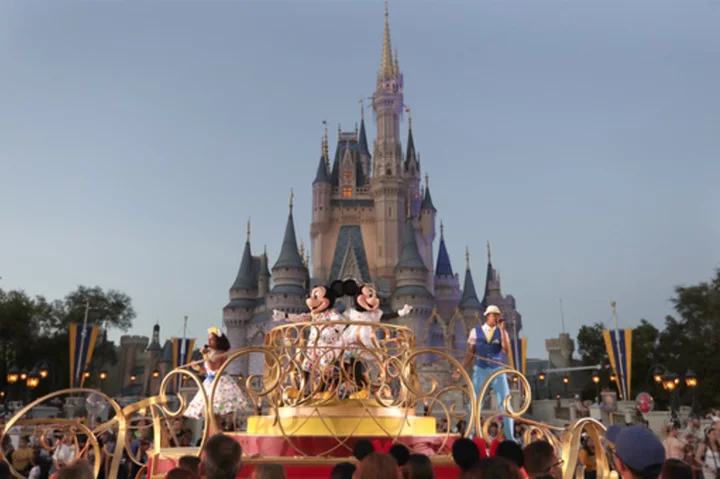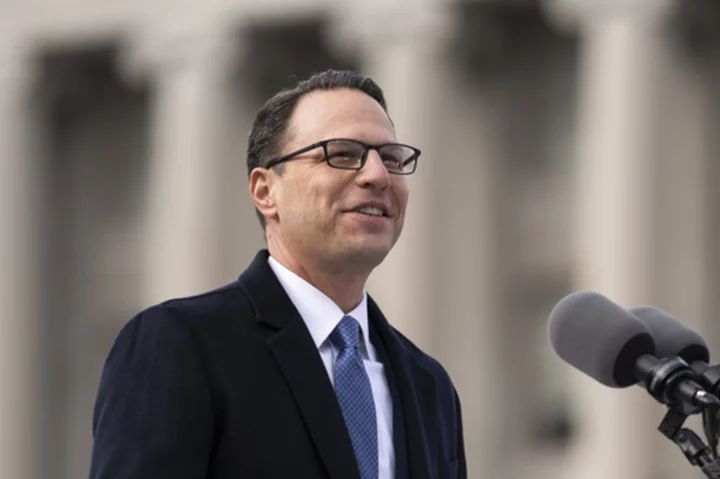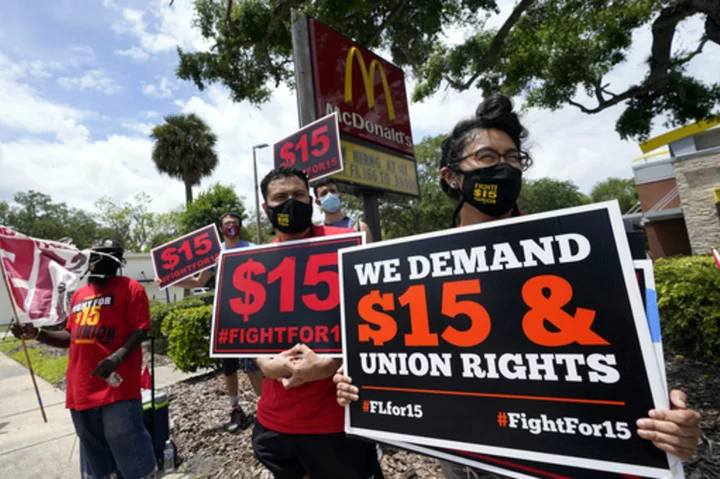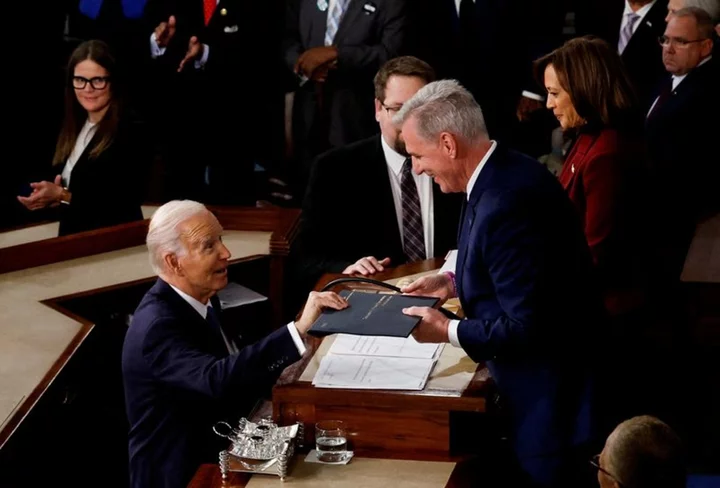By Howard Schneider
AMELIA ISLAND, Florida (Reuters) -Richmond Federal Reserve President Thomas Barkin on Monday said he is not convinced inflation is on a steady decline back to the U.S. central bank's 2% target or that overall demand in the economy has been curbed enough to ensure it gets there.
Barkin said he remained open-minded on whether the Fed at its June 13-14 policy meeting should raise the benchmark policy rate for an 11th straight time or leave it at the current range between 5.00% and 5.25%.
Some data does build the case that the economy is cooling, Barkin said, including "flattish" credit card spending and aspects of the job market, while stress in the banking industry, the implications of that for lending, and an ongoing debt ceiling stalemate argue for caution.
"You could tell yourself a story where inflation comes down relatively quickly ... with only a modest economic slowdown," Barkin said in comments to Reuters on the sidelines of a conference on Amelia Island, Florida.
But "I'm not yet convinced ... I do wonder whether we're not going to need more impact on demand to bring inflation down to where we need to go," Barkin said, laying out a potential case for further rate increases.
It's an issue he won't decide, he said, until closer to the Fed's meeting next month, with data still to come on jobs, prices, and credit, and a potential resolution - or not - of the debt limit fight between President Joe Biden's administration and Republicans in Congress.
Barkin said he is comfortable overall with the Fed's move earlier this month to a meeting-by-meeting, data-dependent approach after having raised the policy rate by 5 percentage points since March 2022 in an effort to lower the highest inflation in 40 years.
That has begun to show some impact, but Barkin said the economy remains resilient in many ways..
"On the unemployment side, I think you could fairly say it's moved from red hot to hot, right?" Barkin said. "There's nothing about 3.4% unemployment that feels ... cool."
"I'm still seeing data that suggests a hot job market and enduring inflation," he said. "I continue to believe that inflation will last longer than perhaps market measures of inflation compensation would suggest. And so I'm still looking to ask myself the question whether we need to do more."
In announcing their latest rate hike on May 3, Fed officials also signaled they may be at a point where they could pause further increases to gauge the impact of their previous actions as well as from what is expected to be tighter conditions caused by the recent run of bank failures.
(Reporting by Howard Schneider;Writing by Dan Burns;Editing by Paul Simao)

